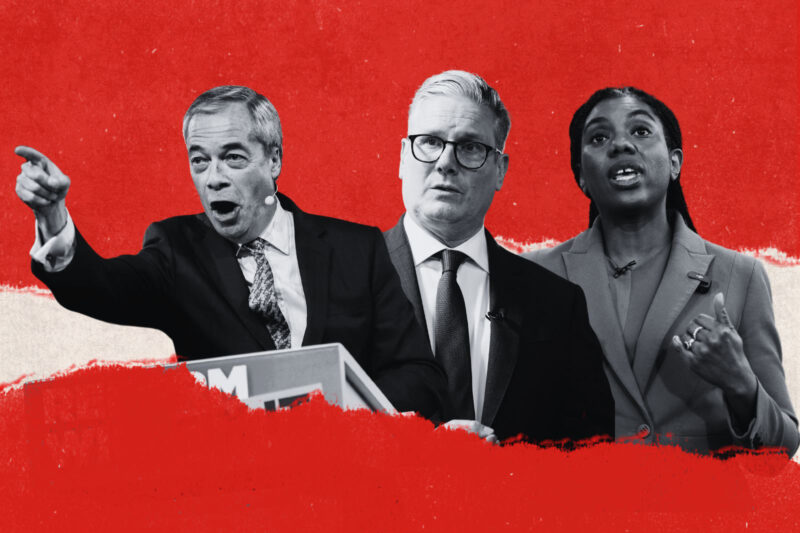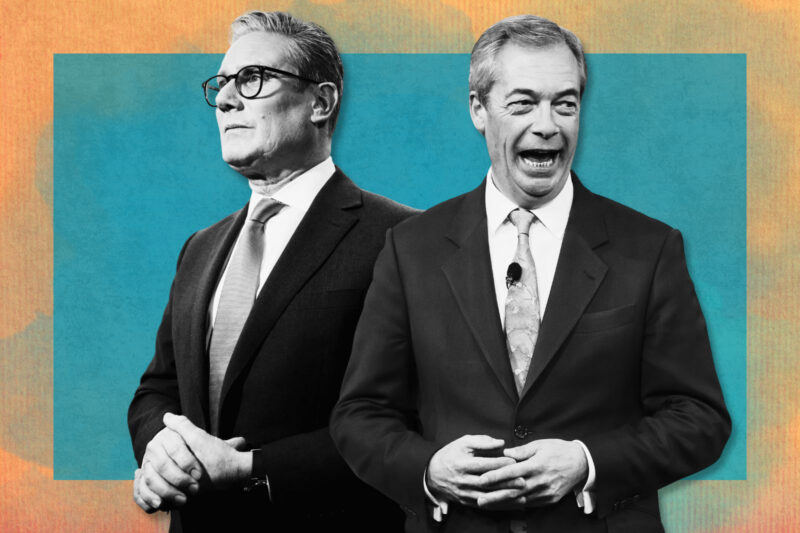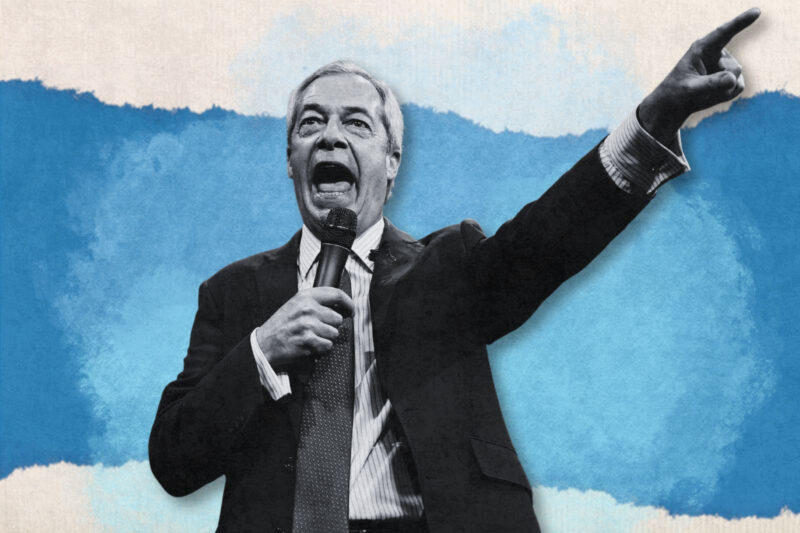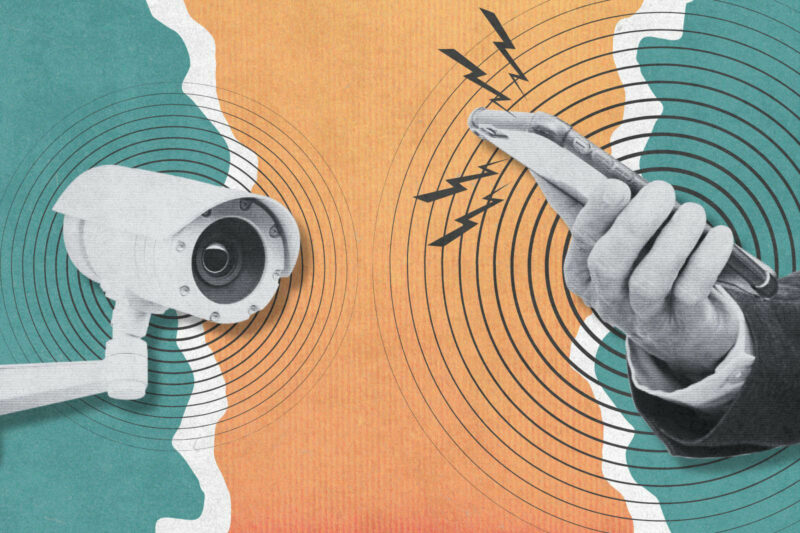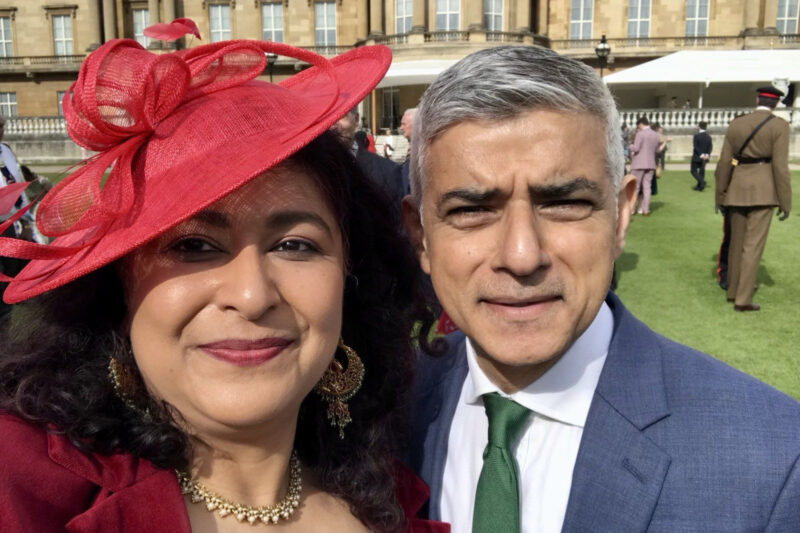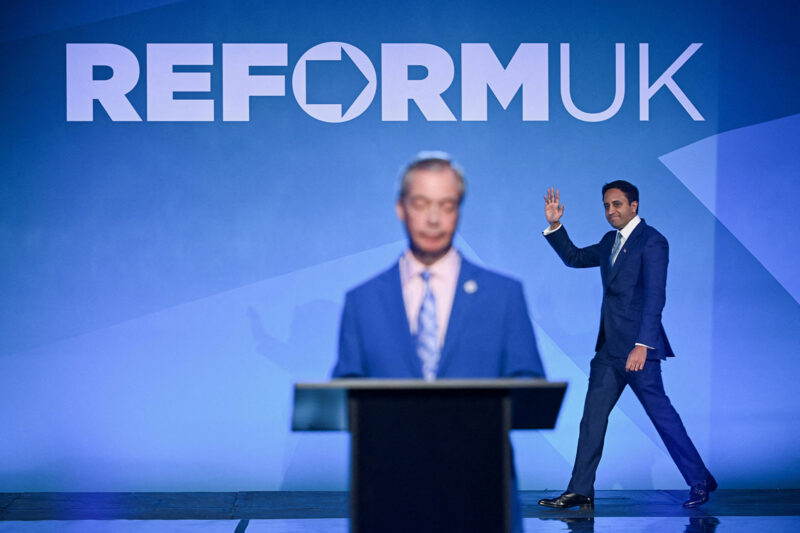Labour sweeps to power as leader Starmer vows to bring change
Conservatives suffer historic defeat as voters punished the party for a cost of living crisis, failing public services and a series of scandals
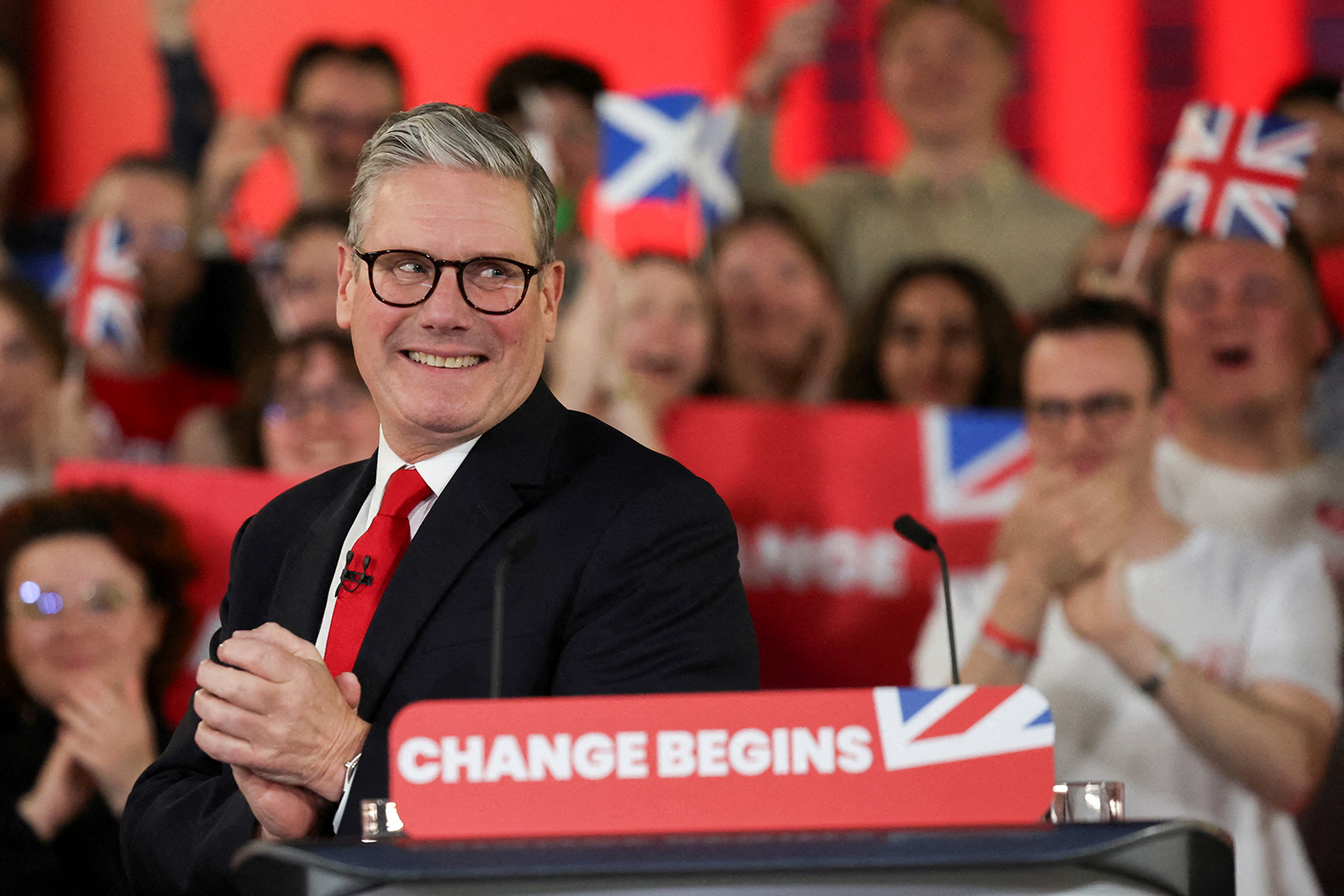
Keir Starmer vowed to bring change to Britain as its next prime minister after his Labour party surged to a comprehensive win in a parliamentary election on 5 July, ending 14 years of often tumultuous Conservative government.
Labour was set to win a massive majority in the 650-seat parliament, with Rishi Sunak’s Conservatives poised to suffer the worst performance in the party’s long history as voters punished them for a cost of living crisis, failing public services and a series of scandals.
“Change begins now,” Starmer said in a victory speech. “We said we would end the chaos, and we will. We said we would turn the page, and we have. Today, we start the next chapter, begin the work of change, the mission of national renewal and start to rebuild our country.”
With about a dozen results still to come, Labour had won 411 seats, the Conservatives 119 and the Liberal Democrats 71 — their best ever performance.
About 250 Conservative lawmakers were ousted in the crushing defeat, including a record number of senior ministers and former prime minister Liz Truss.
Sunak had earlier conceded defeat and said he had called Starmer to congratulate him on his victory.
“Today power will change hands in a peaceful and orderly manner, with goodwill on all sides,” Sunak said after regaining his seat. “There is much to learn and reflect on and I take responsibility for the loss to the many good, hard-working Conservative candidates … I am sorry.”
Despite his convincing victory, polls have suggested there is little enthusiasm for Starmer or his party, and he comes to power at a time when the country is facing a series of daunting challenges.
Britain’s tax burden is set to hit its highest since just after the second world war, net debt is almost equivalent to annual economic output, living standards have fallen and public services are creaking, especially the National Health Service, which has been dogged by strikes.
Starmer has already had to scale back some of Labour’s more ambitious plans, such as its flagship green spending pledges, while he has promised not to raise taxes for “working people”.
“I don’t promise you it will be easy,” Starmer said. “Changing a country is not like flicking a switch. It’s hard work. Patient, determined work, and we will have to get moving immediately.”
Labour has also lost a number of seats to independent candidates campaigning on pro-Palestine platforms. So far, Labour has lost six seats with large Muslim populations — five to independents and one to the Conservatives.
Shadow minister Jonathan Ashworth lost his Leicester South seat, which had a majority of more than 22,000, to independent candidate Shockat Adam, who declared “this is for Gaza” as he won the seat by 979 votes.
Early analysis shows Labour’s vote is down on average by 11 points in seats where more than 10% of the population identify as Muslim.
Much of the heavy damage to Conservative support was inflicted by the right-wing populist Reform UK party, headed by Brexit campaigner Nigel Farage, who had campaigned strongly on curbing immigration.
Starmer has promised to scrap the Conservatives’ controversial policy of sending asylum seekers to Rwanda, but with migration a key electoral issue, he will be under pressure to find a solution to stopping tens of thousands of people arriving across the Channel from France on small boats.
Within the Conservative party, the recriminations and debate over its future direction began immediately, with some saying its failure stemmed from abandoning the centre ground, while others argued Reform had won over voters who felt the party had deserted its roots.
Reform has captured four seats, with Farage himself finally elected to parliament on his eighth attempt. He has won more votes than the Conservatives across swathes of the country.
“There is a massive gap on the centre right of British politics and my job is to fill it, and that’s exactly what I’m going to do,” said Farage. “Believe me, folks, this is just the first step of something that is going to stun all of you.”
The growth in support for a populist alternative echoed recent similar results in Europe, where the far right have been surging.
But, unlike in France where Marine Le Pen’s National Rally party made historic gains in an election on 30 June, overall the British public have plumped for a centre-left party to bring about change.
Starmer has promised to improve relations with the European Union to resolve issues created by Brexit, just as far-right politicians are enjoying success. However, despite opposition to Brexit, rejoining the EU is not on the table.
The election victory represents an incredible turnaround for Starmer and Labour, which critics and supporters said was facing an existential crisis just three years ago when it appeared to have lost its way after its 2019 drubbing.
But a series of Conservative scandals — including revelations of parties in Downing Street during Covid lockdowns — undermined then prime minister Boris Johnson and its commanding poll leads evaporated.
Liz Truss’s disastrous six-week premiership, which followed Johnson being forced out at the end of 2022, cemented the decline, and Sunak was unable to make any dent in Labour’s commanding poll lead.
Sunak stunned Westminster and many in his own party by calling the election earlier than he needed to in May with the Conservatives trailing Labour by some 20 points in opinion polls, and his campaign then proved a disaster.
“We deserved to lose. The Conservative party just appears exhausted and out of ideas,” Ed Costello, the chairman of the Grassroots Conservatives organisation, which represents rank-and-file members, told Reuters.
“But it is not all Rishi Sunak’s fault. It is Boris Johnson and Liz Truss that have led the party to disaster. Rishi Sunak is just the fall guy.”
Additional reporting by Burhan Wazir
 Newsletter
Newsletter

